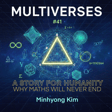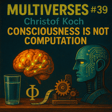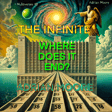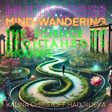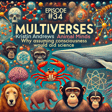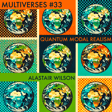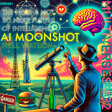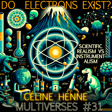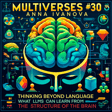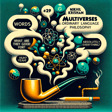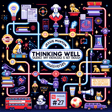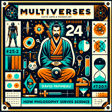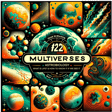
18| Feeling Right: Emotions & Ethics — James Hutton
Can we trust our emotions as a guide to right and wrong?
This week's guest James Hutton is a philosopher at the University of Delft who argues that emotions provide a way of testing our moral beliefs — similar to the way observations are used in natural sciences as evidence for or against theories.
This is not to say that emotions are infallible, nor that they are not themselves influenced by our moral beliefs, but that they do have a place in our moral inventory. In particular, the destabilizing power they can have — their capability to clash with our beliefs — is an important counterpoint to the entrenchment of poorly justified beliefs.
I found myself revising my own views throughout this discussion. It feels right that emotions play a role in our decision-making. Perhaps that feeling is justified.
Outline
(00:00) Intro
(2:28) Start of conversation: Metathical frameworks
(4:45) Reason alone cannot provide moral premises
(6:30) Are moral principles self-evident? Or do we have a moral sense?
(11:00) Is emotion antithetical to reason?
(12:00) Emotional senses:Amia Srinivasan’s example of Nour, an example where emotions are trustworthy
(23:00) Antonio Damasio & Descartes’ Error: the importance of emotion as a motivating force
(29:30) … But should it be a motivating force?
(30:30) Tolstoy’s emotional reaction to an exection and how it disrupted his moral theory of progress
(34:50) Emotions can cause us to revise our moral beliefs
(37:25) This does not mean emotion is infallible as a guide to morality
(40:25) The tension between reasoning from principles and emotional reaction creates a useful instability
(42:00) The analogy between science and moral reasoning: sometimes observations (and emotions) should be ignored, but sometimes we should pay attention to them
(46:00) Is it possible to have a no-holds-barred ethics incorporating principles and emotions? (Not really!)
(49:40) Observations and theories are perennially in conflict, sometimes we reject the observation
(50:40) Utilitarianism: elegant but easy to find cases where it clashes with our intuitions
(51:50) Harvesting organs — where the greatest good for the number does not feel right
(53:20) Ethics and Inuition — Peter Singer: we shouldn’t trust our emotions
(54:20) But why trust the utilitarian principle over our intuitions?
(57:45) Situations in which we need to be wary of our emotions: burn a teddy vs releasing tonnes of CO2
(1:03:00) Emotional blind spots: abstract, global, probabilistic, outgroup vs ingroup
(1:08:00) Partiality: should we treat everyone equally, or do we have special obligations to friends and family?
(1:10:28) Heckled by a doorbell
(1:11:50) Partiality is a litmus case for utilitarian principles vs intuition
(1:15:30) Given emotions are fallible how do we make good use of them?
(1:17:30) Unreliable emotions and ethical knowledge: blood sugar, mood &c. cause emotional noise
(1:19:30) How do we deal with noisy information in other areas — the analogy with testimony
(1:23:50) Defeaters — cues that give us pause to double check our emotional responses
(1:25:40) Negative meta-emotions: e.g. shame at being angry
(1:26:25) Should we expand our emotional repertoire?
(1:30:20) Flight shame as an example of a new emotional response
(1:34:25) Should we expect evolution to have created morally fitting emotional responses?
(1:38:15) The problems with evolutionary debunking arguments
(1:46:43) This is work in progress — google James Hutton Delft to get in touch
